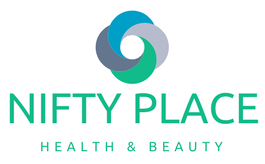Oral surgery is required to solve some serious conditions such as tooth decay, jaw bone or gum disease. Left untreated, these conditions will expand to other teeth/ jawbone areas and even lead to infections and sepsis.
For this reason, if you are recommended to have oral surgery, you should not think twice about it. This does not mean that your worries are not valid. Any kind of surgery carries an inherent risk. However, oral surgeons are prepared to allay your fears with clear and simple answers to your questions.
Prepare Yourself before the First Appointment with the Oral Surgeon
During the first appointment, the oral surgeon will evaluate your case by:
- Examining the affected area
- Explaining to you the extent of the condition and the type of surgery that will solve it
- Answering any questions you may have.
And this means that you must come to your first appointment prepared with a list of relevant questions. This is your chance to evaluate the oral surgeon, their practice and the risks the procedure involves.

Here are some questions you must ask your Parker oral surgeon:
- What Does My Procedure Involve?
Parker dental implants specialists confirm that the oral surgeon should take you through the entire procedure step by step, starting with preparations before the arrival for your surgery, anesthesia and procedures performed, a well as whether you need to spend time under observation in the clinic.
At the same time, you should be told whether you will be able to drive your car to go back home after the surgery, or you need to make transportation arrangements.
- What Type of Anesthesia Will You Use?
Some people have really low pain tolerances and need full anesthesia for oral surgery. However, in most cases, the oral surgeon will recommend conscious sedation. This is a form of anesthesia which keeps the patient aware, but relaxed and not feeling any kind of pain.
For very simple procedures, local anesthesia is sufficient.
- Can I Continue Taking Prescribed Drugs?
You should tell your oral surgeon about all the medications you are currently taking, either prescribed or over the counter. Some of them may affect the effectiveness of anesthesia and you must stop taking them prior to your oral surgery.
In some cases, if you cannot stop a course of treatment, the oral surgeon will recommend postponing the procedure.
- What Kinds of Foods and Drinks Should I Avoid?
Some foods and drinks are not recommended if you are undergoing dental treatment and surgery. Carbonated drinks, for instance, are not good for your teeth (and your overall health, in fact). Your oral surgeon will be able to give you a comprehensive list of foods and drinks you should avoid, as well as a list of foods you are encouraged to eat.
- What Kind of Insurance Do You Take?
Each oral surgeon accepts various types of health insurance policies. However, since these procedures are quite expensive, many practices offer patients various financial plans, such as advance payment followed by several installments.
